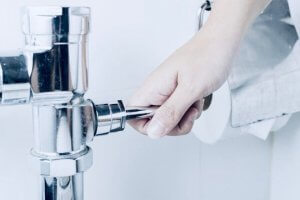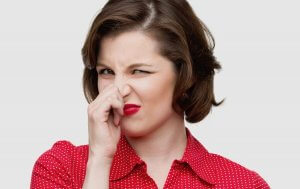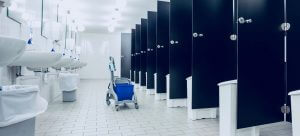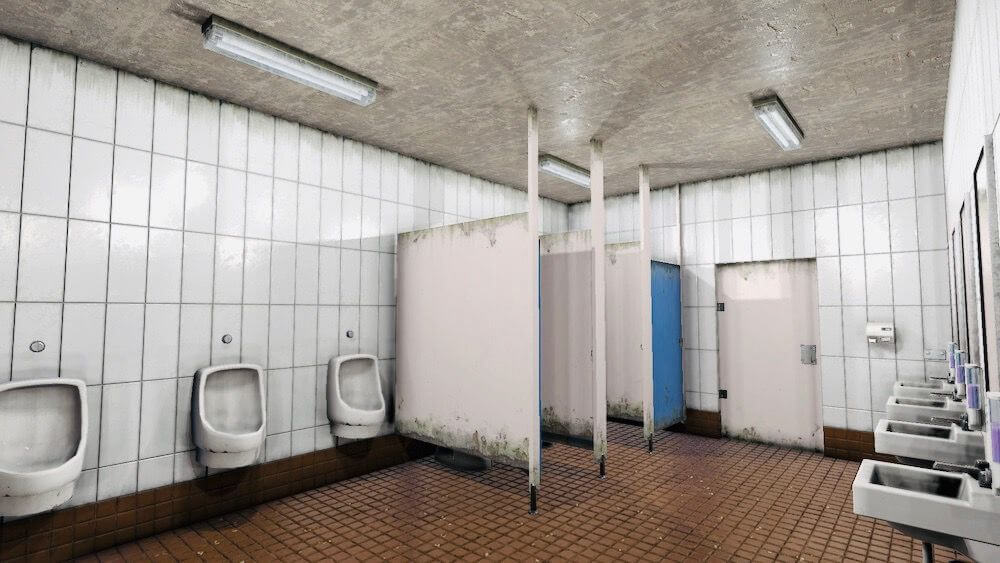Public toilets are queasy topics for polite discussion because the words “public” and “toilet” are uncomfortable bed fellows. They reinforce the human predicament of having to perform a very personal act in the presence of total strangers. People often freak out about public restrooms and not entirely without cause.
While a clean public bathroom encourages positive feelings about a business, the impact of a dirty one is far-reaching because customers equate the cleanliness of a company bathroom with that of an entire business.
In the case of a restaurant, it is the kitchen that is the parallel association, which is deadly for return business and positive reviews, no mater how good the food, or service. As of December 2010, 86 percent of adults in the United States equated the condition of a restaurant’s bathroom with the state of its kitchen.
How A Bad Business Reputation Can Hurt Your Business
According to Clean Link, well-maintained restrooms lead to happier customer interaction, which in turn reduces the chances of complaints being lodged against an establishment, whatever industry it may be. In this modern cyber age, all it takes is one unhappy blogger to comment on the state of a restaurant’s bathrooms to discourage future traffic. Clean facilities make customers feel like you care about them and they reward you with encouraging reviews that generate local interest and traffic.
Why Are Public Restrooms Unpopular?
The following are eight major reasons why people are turned off to public restrooms in general. All of these issues can be eradicated with the help of Enviro-Master, whose odor-management products and superior services are the best found anywhere within the industry.
1. When Public Restroom Have No Soap
Hand washing is one of the most effective, and simplest, ways to stop the spread of infection-causing germs. According to the Centers for Disease Control and Prevention (CDC), good hand washing practices, which involve washing for at least 20 seconds, is the best strategy for eliminating germs from hands. Washing hands with soap and water has been shown time after time, to prevent the spread of pathogens and illnesses. A 2013 Michigan State University study discovered that a shocking 95 percent of people who visit public restrooms do not wash their hands well enough to fully kill germs. Ten percent of patrons didn’t wash their hands at all!
The CDC further recommends that either bar soap or liquid soap should be used after a trip to the bathroom or before a meal. Recent hand-hygiene studies in the developing world have found that washing with soap and water reduces infections even when the water supply might not be clean. If there is no soap in a public bathroom, the only alternative is to use a hand sanitizer, albeit carrying it on one’s person is not usually an everyday affair. No soap in public restrooms ultimately translates into negligence and a basic disregard for the needs of its users.
2. Dirty Restroom Surfaces Are A Huge Turnoff
Believe it or not, the number one dirtiest surface in public bathrooms is the flush mechanism itself. Try closing it with a foot rather than your hand. The lock or handle on the stall door is another culprit to watch out for because it comes in constant contact with unwashed hands. A study published in Applied and Environmental Microbiology found that about 45 percent of the bacteria found throughout the restrooms tested, including on soap dispensers, were of fecal origin.

The bathroom sink contains thousands of pathogens. Another study indicated that the most contaminated bathroom area was the sink, which had more than 1,000 colony-forming units. Users with dirty hands must turn on a faucet, which automatically contaminates it by the many unwashed hands of previous users. Watch out too for the levers on those manual soap dispensers, especially if you have added some water, which transforms your washing liquid into pathogenic soup. The bathroom door is another good place to opt to use your foot, rather than your hands to open and close.
3. Filthy Toilets And Stained Toilet Seats
Our Enviro-Master experts know all too well that dirty toilet seats are a pet peeve among public bathroom users and a major cause for their unpopularity. According to Dr. David Jay Weber, an epidemiologist and physician at the Gillings School of Global Public Health at the University of North Carolina, Chapel Hill, “If you come upon a stained and/or filthy toilet seat, you might want to consider cleaning the toilet seat with an alcohol-based wipe before you sit down.”
You can also line the seat with toilet paper, but try not to touch it in the process. Keep in mind that the paper you line the seat with may also have germs on it, because the last time the toilet was flushed, it probably aerosolized germs from the toilet into the air, which may have settled on the paper you’re using! In light of this information, you may be inclined to simply hold it until you get home!
In the words of Abigail Salyers, former president of the American Society of Microbiology: “… You can catch something nasty from a filthy toilet seat, but the germs on it have to travel into the genital or urinary tract or enter the body via an open cut or sore in the rear-end, none of which are particularly likely as long as you don’t touch the seat with your hands…”
4. Grimy Dirty And Soiled Restroom Floors
While all users should avoid touching any public bathroom surface, the floor especially, can be a troubled spot for bacteria. If a roll of toilet paper is on the floor, users should never touch or use it. While it seems almost too obvious to state, users should never put any of their belongings, such as purses or books, on the floor of a public bathroom as there is usually some urine on the floor.
Charles Gerba, a microbiologist at the University of Arizona who studied germs in public restrooms and earned himself the nickname Dr. Germ, discovered in a recent study that one third of the women’s purses he examined harbored fecal bacteria on the bottom.
There is no compromising the need for clean floors in public restrooms to promote a facility’s positive impression as well as a sense of health and safety to its users. Due to the fact that many business owners and managers are saturated with responsibilities during their work day, the conditions of their restrooms can be (and often are) overlooked even though failing to maintain them can lead to costly repairs. That’s where we can help, as bathroom maintenance is our only concern. Our superior products and services are the best on the market today.
5. Dirty Grimy Public Restroom Walls
The interior walls of public restroom stalls and the “aerosol effect,” which is also known as “toilet plume,” translates into terms that hopefully will not cause readers to throw up their lunches. It refers to the fact that particles of fecal matter become airborne, land everywhere, especially on the interior walls of stalls, and are rarely if ever cleaned!

6. Finding No Toilet Paper Or Towels
According to a survey conducted by Toilet Paper World, 69% of participants indicated that the 20th century convenience that is most taken for granted is toilet paper. One way to avoid running out is for company management to have their cleaning staff maintain a log, which documents the date and time of restroom cleaning, the employee responsible and a list of tasks, which include when restrooms were last cleaned and restocked with essentials such as toilet paper, paper towels and soap. Of course, engaging our paper products program helps businesses immensely with this initiative.
7. Smelly Stinky Odorous Bathrooms
A bad smell is the top complaint for nearly 80 percent of people who have had an unpleasant public restroom experience. If a restroom smells bad, users will perceive it as dirty. For the majority of public restrooms, the source of the bad odor is urine, which is caused by bacteria that have grown by using urine as a food source.

Understanding the conditions that cause restroom odors will help managers devise a strategy to successfully remove them and prevent their return. Enlisting the help of our specialty bathroom products and services may be required to initiate a program that will eradicate these malodors.
8. Unsanitary Feminine Napkin Bins
There are few things more repulsive in a public restroom than the sight of unsanitary napkin bins. Standard-issue sanitary bins promote exposure to waste, and often become breeding grounds for bacteria and odors. Rather than touching such a bin, most women would rather flush, and this can and often does cause drain blockages. The introduction of free-standing units can help the situation because they can be easily removed from the stalls during restroom cleaning without any risk of exposure to the contents.
Enviro-Master Pittsburgh To The Rescue
In business for more than four decades, we are a leading purveyor of commercial restroom services for all types of Pittsburgh and Western Pennsylvania commercial enterprises and have earned our outstanding reputation for excellence in both the products it offers and its customer service.
Dedicated to promoting superior bathroom hygiene, our comprehensive program includes: tile and grout deep cleaning; fruit fly and drain control; paper products; soaps and sanitizers; air fresheners and the Sani-Services program.
The Sani-Services Program For Pittsburgh Businesses
This ensures that Pittsburgh company restrooms are protected against common diseases and viruses. During our weekly Sani-Service, a highly trained Health and Safety Technician will come to the appointed facility to sanitize and coat the public restroom with their very own Sani-Shield.

This makes cleaning easier every time because it protects glass, porcelain, ceramics, laminates, plastics, marble, granite and other surfaces against the adhesion and buildup of soap scum, stains, rust, lime scale and hard water minerals. The Sani-Service program also includes urinal screens, soap, and air freshener scent. Teamed with mother company, Air-Scent International, we also offer excellent environmental odor control and air freshening solutions.
In Conclusion
Any successful company makes a name for itself when it prioritizes restroom cleaning. This not only communicates to users that a business cares about its customers and personnel, it also promotes health and safety and minimizes expensive repairs.
Call Enviro-Master Pittsburgh today (412) 462-5525 and enjoy peace of mind and a clean restroom tomorrow!

